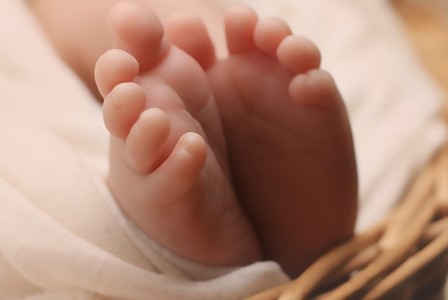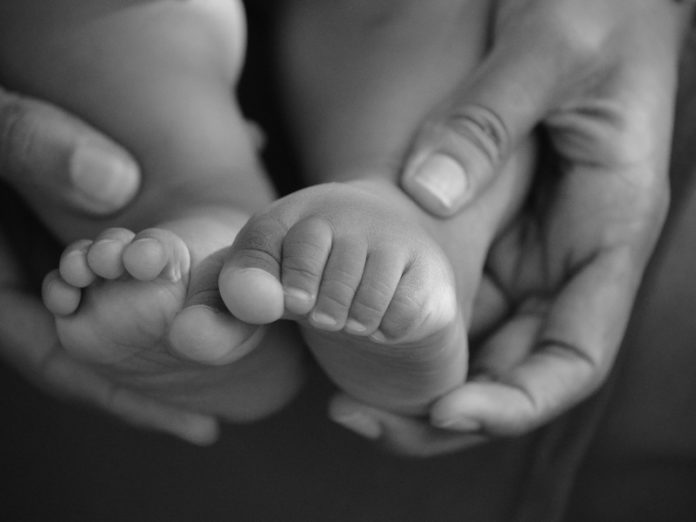What is the risk of miscarriage? It is a word used to describe the loss of a pregnancy before 20 weeks due to various reasons. Miscarriage mainly occurs in the first trimester. This is very unfortunate that around 10 to 20 % of pregnancies in America end up in Miscarriage.
Miscarriage is a sad and unfortunate event in a couple’s life. It takes a major emotional and physical toll on a woman.
However, during pregnancy, many women fail to realize that they went through a miscarriage. This article will give you a detailed understanding of why it happens, the different stages of pregnancy, the early signs of miscarriage, etc.
In many cases, miscarriage happens before a woman realizes that she is pregnant. But as pregnancy progress chance of miscarriage decreases.
Contents
What Are The Common Causes of Miscarriage?
There are many causes of a miscarriage which include.
- A genetic problem with the unborn baby has nothing to do with the mother.
- Certain diseases such as diabetes or thyroid.
- Hormone disorder.
- A physical problem with the mother
- Progesterone Deficiency
- Abnormal uterus.
- Infection in the uterus.

Risk of Miscarriage During Pregnancy by Weeks
For a pregnant woman, miscarriage is a big concern. But as pregnancy progress chance of miscarriage decreases. After reading this article you will have a better understanding of why miscarriage occurs and what the sign and risks involved in miscarriage are. Knowing the sign and risks of miscarriage week by week is very important for a pregnant woman.
- 2-4 Weeks
Weeks 1 to 4 is very critical for pregnant women. The maximum number of miscarriages occurs during this phase. The chance of miscarriage is very high and which is around 20- 70%. But as pregnancy progresses chances of miscarriage decrease.
Sign of Miscarriage During 2-4 Weeks
- Heavy bleeding with clots
- Lower back pain
- Severe or low menstrual cramps
- For someone woman, bleeding can go up to 10 days
| Age | Chance of Miscarriage |
| 20-30 years | 20 -30% |
| 30-39 Years | 25 – 40% |
| 40-44 Years | 40-50 % |
| 45+ years | 80 – 100% |
- Weeks 5-6-7
Risk of miscarriage decrease drastically after week 5 to 6 %- 20 %. Once you complete 5 weeks of your pregnancy, you also miss your periods.
At this stage, the embryo is just starting to take shape and consists of 3 layers the endoderm, ectoderm, and mesoderm.
Sign of Miscarriage between weeks 5- 7
- Bleeding
- Cramps
- Bleeding with clots
- Abdominal pain
- Heavy Heartbeat
The chance of miscarriage is higher for women above the age of 35 years. As a woman get the old chance of miscarriage increase drastically.
An older woman may be more secure financially and mentally but the older woman also has a high chance of having a baby with Down syndrome. Visit your doctor regularly if you notice any signs or symptoms of miscarriage.
| Age | Chance of Miscarriage |
| 20-30 years | 8- 17% |
| 30-39 Years | 10-20 % |
| 40-44 Years | 20- 30 % |
| 45+ years | 30 % |
- Week 8
After week 7 risk of miscarriage decrease greatly and by week 8, you can actually hear the heartbeat of the baby. As the heartbeat increases, the chance of miscarriage decreases. The baby grows very fast during this phase.
The chance of miscarriage at week 8 reduces to 5-10 %. To continue a healthy pregnancy you just need to do what your doctors say. Keep a healthy diet and environment for a healthy pregnancy.
Symptoms / Signs of Miscarriage at Week 8
- Menstrual Cramps pain
- Pain in lower back and abdomen
- Blood clots
- Fatigue
- Heavy bleeding
| Age | Chance of Miscarriage |
| 20-30 years | 5% |
| 30-39 Years | 7% |
| 40-44 Years | 8 % |
| 45+ years | 10% |
- Week 9
At week 6 the chance of miscarriage reduces to 3 -6%. The baby becomes the size of a grape and develops body parts. At this point in pregnancy, you will feel morning sickness and frequent changes in your mood.
You should follow your doctor’s instructions during this phase of your pregnancy.
Miscarriage warning symptoms at week 9
- Lower back pain that can be mild or severe
- White pink vaginal discharge
- Sudden weight loss
- Very painful contractions
- Bleeding with clots and clots will appear like an embryonic sac
| Age | Chance of Miscarriage |
| 20-30 years | 3% |
| 30-39 Years | 4% |
| 40-44 Years | 5 % |
| 45+ years | 6% |
- Week 10
At week 10 risk of miscarriage become very less but you cannot be careless. Follow your doctor’s advice and eat healthily. Only 2-4% of women has a miscarriage in week 10.
Signs of Miscarriage at 10 Weeks
- Lower back pain that can be mild or severe
- White pink vaginal discharge
- Sudden weight loss
- Very painful contractions
- Bleeding with clots and clots will appear like the embryonic sac
| Age | Chance of Miscarriage |
| 20-30 years | 2% |
| 30-39 Years | 3% |
| 40-44 Years | 4 % |
| 45+ years | 5% |
- Week 11-12
The risk of miscarriage at week 11-12 become 1-3 %. You will feel morning sickness and mood swings during this period of pregnancy. You should take care of your diet and daily physical activity to have a healthy baby.
Signs of Miscarriage at 11-12 Weeks
- Lower back pain
- White pink vaginal discharge
- Very painful contractions
- Bleeding with clots and clots will appear like an embryonic sac
| Age | Chance of Miscarriage |
| 20-30 years | 1% |
| 30-39 Years | 2% |
| 40-44 Years | 3 % |
| 45+ years | 4% |
Risk Of Miscarriage by Fetal Heart Rate
Many people wonder and ask their doctor about the link between the fetal heartbeat of a baby and miscarriage. In fact, the heartbeat of a baby can assure you that the pregnancy is going well or not. Sometimes heartbeat is also a sign of miscarriage.
Can the Heartbeat predict Miscarriage? According to research and many doctors, the heartbeat of a baby between 6-9 weeks should be 160-180 per minute. It means your pregnancy is going well. But it will reduce to 110 -160 per minute as the baby develops its brain after week 9.
If your baby’s heartbeat rate is less than what it should be according to the gestational age then it is a sign of miscarriage. As we have already mentioned most miscarriage occurs because of abnormal chromosome.
According to a study chance of miscarriage increases if the baby’s heartbeat drops less than 100 per minute at weeks 6-7. But it is not certain so you should consult with a doctor and have multiple ultrasounds to make sure.
Does Male Sperm and Age Cause Miscarriage?
Yes, miscarriage risk not only revolve around a woman’s age but also depends on a man’s age and sperm quality. According to a study on 12000 people in France, pregnancy rates drop surprisingly when a man is an age above 35.
Also, the number of miscarriages increased drastically. So it’s clear that the age of men is as important as that of women. It is also found in the study that abnormal DNA in sperm can cause miscarriage.
Why Do Miscarriages Happen?
For a woman, pregnancy is a very big step as well as a blessing but sometimes it comes with some complications and miscarriage occur. It can happen to a healthy woman too and sometimes you don’t realize it for days.
So big question comes to your mind why it happens or why miscarriage occurs? There can be many reasons for miscarriage.
Miscarriage occurs when an embryo or fetus dies before 20 weeks. Even though it is very common but it can be tough for a woman to deal with emotionally. If a woman had a miscarriage in the past that does not mean she cannot have a baby in the future or miscarriage will happen again. Reasons for miscarriage include
- The abnormal number of a chromosome when the egg is fertilized can cause miscarriage.
- A certain illness that cannot be treated can cause miscarriage.
- 2 or more miscarriages can increase the risk of having a miscarriage in the future.
What are the different types of miscarriages?
Mainly miscarriage occurs in the first trimester but it can happen until week 12 of pregnancy. There are many types of miscarriage which include.
- Threatened miscarriage – It happens when you have bleeding and cramps but your cervix is closed is called a threatened miscarriage.
- Inevitable miscarriage – When you have heavy bleeding with cramps and your cervix is open.
- Missed miscarriage – This type is more heartbreaking because there are no cramps and bleeding involved. But when you have an ultrasound embryo has no heartbeat or your womb is empty.
- Complete miscarriage – When all the embryo tissue comes out and you don’t need treatment.
- Incomplete miscarriage– It occurs when some tissue gets out and some is left in the uterus.
Prevention Tips for Miscarriage
Mostly miscarriage occurs because of genetics and some other problems which we cannot control. But if you planning to conceive a baby you need to prepare yourself mentally and physically. Change your eating habits and lifestyle. Follow the below tips to have a healthy pregnancy.
- Eat healthy and balanced
- Do light physical exercise
- You can start doing yoga
- Stop smoking and drinking alcohol
- If you are a coffee addict then avoid drinking it.
- Get in touch with a good doctor for a healthy pregnancy.
Closing Thoughts
Miscarriage is something that we definitely don’t want anyone to face. But sometimes it is just inevitable. So to spread awareness and relevant knowledge, we have mentioned everything related to miscarriage in a detailed manner. Hope we have helped a bit in spreading information through this article to you.
Frequently Asked Questions
1. What is the most common week to miscarry?
Ans: Most miscarriages occur before the 12th week of pregnancy.
2. What are the common symptoms of miscarriage?
Ans: Signs and symptoms of a miscarriage might include: Vaginal spotting or bleeding. Pain or cramping in your abdomen or lower back.
You can also check:
